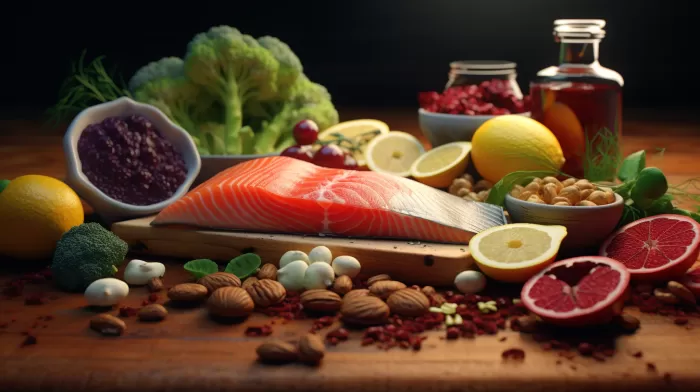High cholesterol is often referred to as a silent killer, as it comes with no visible signs and symptoms. It can, however, lead to heart attack, a major indication that there is a problem. Although statin drugs are the primary treatment in modern medicine for lowering LDL (“bad”) cholesterol, they could be causing more damage than good.
Understanding Cholesterol
Cholesterol is a necessary and naturally produced molecule in the body. The liver produces cholesterol, which plays critical roles in the body, such as creating new cells, insulating nerves, and generating hormones. Additionally, cholesterol can be consumed through food, specifically animal-based products like meat and dairy.
There are two types of cholesterol: “good” HDL and “bad” LDL. Excessive LDL cholesterol in the arteries can result in heart disease and heart attack.
The long-standing hypothesis for the build-up of cholesterol in the arteries, known as atherosclerosis, is that it is caused by ingesting cholesterol-rich, high-fat foods, like red meat, eggs, and dairy products. More recently, it has been suggested that systemic inflammation can cause cholesterol to buildup in the arteries. This inflammation is said to be triggered by processed foods and trans fatty acids, such as hydrogenated oils, found in many shelf-stable grocery products.
The Problem with Statins
Statins are a class of drugs that lower cholesterol by blocking the chemicals in the liver that produce it. However, since cholesterol is necessary for healthy bodily functions, statins can be harmful. The journal Atherosclerosis recently published a study that showed statin use may result in significant coronary artery calcification, with users having a 52% higher prevalence and extent of calcium-containing coronary arterial plaque. This calcification has deadly potential, as it prevents arterial opening from expanding to allow increased blood flow. Statins also increase the risk of type 2 diabetes, deplete heart muscle of CoQ10, weaken muscles, and cause vascular weakening.
Natural Solutions for Lowering Cholesterol
When looking at options for lowering cholesterol build-up, natural solutions are both gentle and effective. These include:
- Diet and exercise: A well-established fact is that weight loss can help decrease cholesterol. Successful weight loss comes from exercise and a healthy diet, both of which can be tailored to reduce inflammation-causing processed foods.
-
Soluble fiber: A high-soluble-fiber diet can lead to a decrease in cholesterol by reducing LDL absorption in the bloodstream. Consuming 5-10 grams per day from foods like oat-based cereals, lentils, flax, beans, psyllium, apples, oranges, prunes, blueberries, strawberries, cucumber, celery, and carrots can help increase fiber naturally.
-
Omega-3 fatty acids: Increasing HDL “good” cholesterol is essential, as it helps transport LDL through the body for processing; this can be accomplished by increasing intake of Omega-3 fatty acids. Consuming fish, such as wild salmon, albacore tuna, halibut, herring, and sardines two to three times per week or supplementation can help reach this goal.
-
Olive oil and nuts: Olive oil helps reduce LDL cholesterol, while nuts, particularly walnuts, hazelnuts, and almonds, are rich in polyunsaturated fat. This combination helps reduce cholesterol while promoting vascular health.
-
Bergamot extract: The antioxidant oil from bergamot, known for its unique flavor in Earl Grey tea, contains high levels of flavonoids that protect cells from oxidation and free-radical damage. In the body, it blocks a vital enzyme in the production of cholesterol. In studies, participants experienced a nearly 40% decrease in LDL after taking 500-mg doses of citrus bergamot polyphenolic extract for 30 days.
-
Red yeast rice: A natural alternative to statin drugs, red yeast rice has a similar cholesterol-lowering effect without the side effects. A variety of naturally occurring statins are believed to be responsible for this effect.
The Takeaway
There are various natural ways to reduce bad cholesterol and prevent artery blockage. If you are currently taking a statin drug, consult with your physician about the possibility of transitioning to natural alternatives while weaning off the medication. Finally, incorporating these natural solutions into your daily routine can significantly boost overall health, even if cholesterol is not a current concern.



